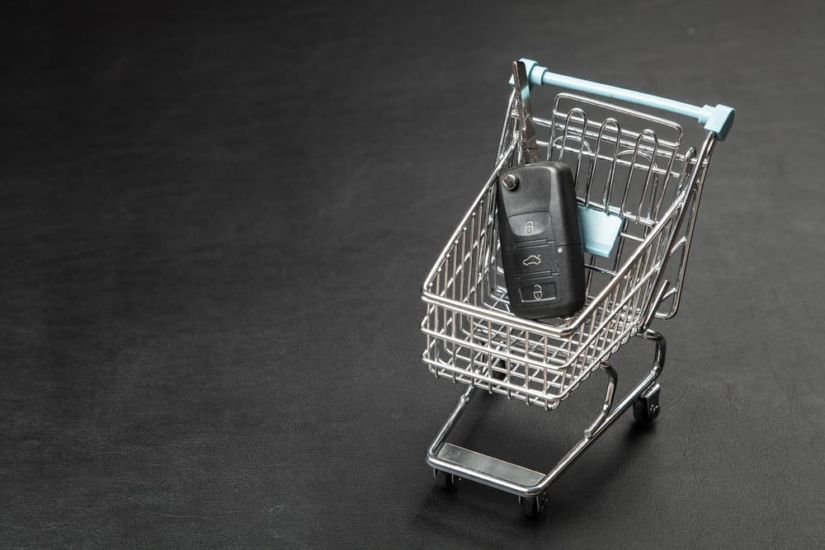Whether you buy a car online from a private seller or through the internet sales department of a franchised dealer, there is a chance you could get screwed. Is that really a surprise to anyone? Considering that claims of internet fraud are attached to everything from online dating to election tampering, why would car sales (traditionally viewed as a “shady” practice) be any different?
Selling a car is really no different than any other type of business. For the seller, the internet provides more direct access to potential customers. In addition, it can be empowering for the buyer, especially if there is a perception (or reality) of cutting out the middle man. But just because it’s easier, certainly doesn’t mean it’s better.
Google is a Gateway Drug
A recent study by Cox Automotive determined that 88% of car buyers will begin their search online. Whether looking at various models, or performing exhaustive due diligence, one thing is clear: today’s car buyers want to be informed and empowered in their decision-making before they ever set foot on a dealer lot.
Considering that 71% of car buyers purchase the vehicle they had initially intended do, it’s fair to say that most have a clear understanding of what they’re looking for. Unfortunately, this kind of overconfidence spikes online car sales.
It’s no different than opening Amazon on your smartphone to check prices on an item that you’re interested in. If the price is right, and you know that you can save yourself a trip to the store, it becomes easy to click that button. Buying made easy is the oldest trap in consumerism. Internet sellers recognize this, so be cautious when reaching for that cheese.
Add To Cart
Considering the alarming speed at which brick & mortar sales morphed into eCommerce, the future of consumerism becomes anyone’s guess. Who’s to say that we will always have the luxury of purchasing with the assurance of our own experience? Could car sales ever be restructured so that we are forced to buy a car online? Time will tell, I suppose.
Ultimately, I like to think that there will always be a physical element to car buying. It’s entirely different than streaming music, television or movies. It’s more akin to reading, and no matter how many people choose to read their books on Kindles, Nooks, and iPads there will always be a segment of our population that want to hold the book, turn the pages and hear the binding crack.
Cars fall into the same category. Regardless of advances in automotive technology limiting the extent of maintenance the average person can perform, there will always be drivers who want to get under the hood. As car buyers, they will never rely solely on another person’s opinion, endorsement or an advertisement. They want to experience it for themselves.
These are my people; and we’re raising our children with the same mindset. If we’re successful, then maybe I will never be forced to buy a car online.
Easier Isn’t Always Better
Rest assured that I have no desire to talk you out of buying a car online. But if we’re being honest, what’s the real payoff? The fact that you’ll have to spend less time in a dealership, and may be able to bypass salespeople completely? Is the sacrifice really worth it?
There is a visceral element to car buying that calls to your senses (well, most of them since most sellers frown on potential buyers “tasting” a vehicle). You’ll have a hard time convincing me that even the best online gallery in the world would convince you how good a car looks, as effectively as seeing it in natural light would. Regardless of how well-written it is, an article describing the comfort of the cabin and seat design can’t compare to the sensation of sliding in behind the wheel. Watch all the YouTube clips that you want; I want to hear the purr of the engine and change of gears with my own ears. And don’t even get me started on “new car smell.”
A desire to avoid the unpleasant elements of car-buying (I’m looking at you, “large percentage of salespeople”) should not dissuade you from performing your due diligence. Nothing read online should be taken as gospel, and you need to trust yourself to gauge your true connection to a vehicle.
With this in mind, it’s important to understand the terms of any online purchase. While we applaud the use of a dealer site to reserve a vehicle, schedule a test-drive or initiate financing, it is always worthwhile to experience the car for yourself. After all, it’s not an $11 cheeseburger that you’re picking up because your co-worker recommended it. Buying a car is a very expensive investment, and deserves more attention than an endorsement from a complete stranger.
The Evolving Dealership
Since we’ve had some fun at the expense of dealerships and their salespeople, let’s take a second to look at the positives. That’s right…the positives.
Just as the internet has made clickbait selling more commonplace, it has also increased transparency based on freedom of information. Once people could share information instantaneously, the burden fell on car manufacturers and dealerships to strike first.
As such, dealers are assessed on their ability (and willingness) to price more accurately, and to provide assurances such as Vehicle History Reports. This has become the base expectation of most consumers, and most dealerships were wise in heeding the call. After all, any consumer can pull up a CarFax. Dealers recognize this, as well as the fact that any lack of transparency could lead a potential customer to a competing dealership. With most consumers deciding between two to three dealers, it becomes easy to see how quickly a dealer could secure or lose a sale.
Getting Screwed
It’s a subjective term. Regardless of how good of a deal you can get, costly purchases like cars can easily create doubt.
But we shouldn’t shy away. Most of us will buy multiple cars in our lives. Whether you use traditional methods, or buy your car online doesn’t matter. What matters is that you’ve taken the steps to be informed, trust in your own experiences, and buy with confidence. Do this, and your far less likely to get screwed.



